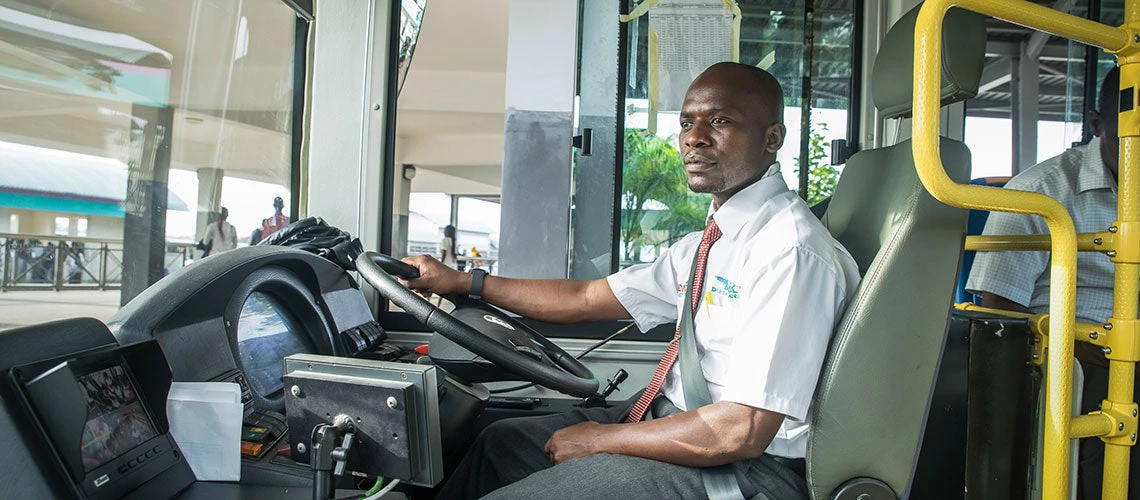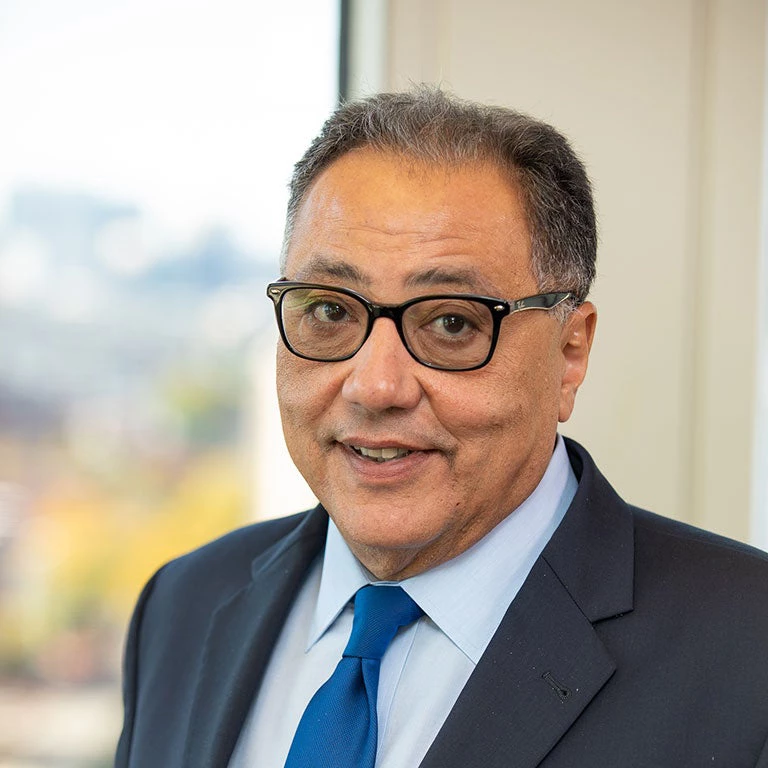 Dar es Salaam’s new bus transit system is decreasing transportation costs, easing traffic throughout the city, and reducing emissions
Dar es Salaam’s new bus transit system is decreasing transportation costs, easing traffic throughout the city, and reducing emissions
Despite contributing the least to the climate crisis, Sub-Saharan Africa, home to over 1 billion people, continues to suffer some of the worst consequences of a changing climate. In 2019, we saw the catastrophic impacts of Cyclone Idai on millions of people in Mozambique, Zimbabwe, and Malawi, and in 2020, locusts caused widespread food insecurity in the amidst of a global pandemic.
Across Africa, the World Bank is calling for countries to seize a once-in-a-lifetime opportunity to scale-up efforts for climate resilience to grow their economies and reduce poverty , increase energy access across the region, and take advantage of sustainable and innovative approaches to leapfrog into greener development pathways.
The Next Generation Africa Climate Business Plan, launched in September 2020, sets out a blueprint to help Sub-Saharan African do just that. Over the next six years (2021–26), the World Bank will focus on five key areas in Africa— food security, clean energy, green and resilient cities, environmental stability, and managing climate shocks— that emphasize the interrelatedness of climate risks and opportunities.
The Plan sets ambitious goals that push the boundaries of sustainable development in Africa, including training 10 million farmers on climate-smart agricultural approaches, expanding integrated landscape management over 60M hectares in 20 countries, increasing renewable energy generation capacity from 28GW to 38GW to increase access to clean electricity, and outfitting 100 cities with low carbon and compact urban planning approaches.
Ambitious climate action could deliver $26 trillion to the global economy between now and 2030 as well as 65 million new low-carbon jobs worldwide, providing opportunities for Africa as new markets develop. For example, the Bank’s Lighting Africa Program has helped expand electricity access to 32 million more Africans in 27 countries in sub Saharan Africa by providing modern off-grid solar systems and continues to take advantage of opportunities that emerge as the off-grid energy sector evolves, such as solar irrigation and milling and innovative pay-as-you-go business models that enable rural, low-income populations to access clean energy solutions.
Beyond the energy sector, enhanced landscape, seascape and watershed management approaches can deliver multiple co-benefits, from reducing rural poverty and boosting food security, to protecting and regenerating ecosystems and biodiversity. In Ethiopia, for example, the Bank is providing $500 million in results-based financing to the government for the Climate Action through Landscape Management Program to increase the adoption of sustainable land management practices and expand access to secure land tenure in rural areas.
Sub-Saharan Africa is also undergoing an urban transformation. If successfully managed, this transformation can make cities engines of growth and reduce poverty for the region. Mobility will be key to making this happen— African countries need to expand their ports, roads, railways, airports, public transit systems, and waterways to create and sustain modern supply chains and enable their people to move about freely. In Dar es Salaam, Tanzania, the development of a bus rapid transit systems already offers an affordable and efficient transportation option for the city’s residents, and sophisticated drone technology is creating more accurate models of water flows to help planners to assess city operations and flooding.
We have also seen that infrastructure serves as solid lines of defense against the physical impacts of climate change, such as flooding, storm surges, coastal erosion, tropical storm winds, and other disasters. For instance, the São Tomé and Príncipe Transport Sector Development and Coastal Protection Project is helping to build resilience among coastal communities by rehabilitating critical stretches of coastal roads while the Northeastern Transport Improvement Project (NETIP) is connecting Ethiopia, Kenya, and Somalia through a corridor of roads and bridges that are resistant to extreme weather and erosion.
Clearly, climate change cuts across every priority the Bank has – poverty reduction, job creation, infrastructure development, and more. Countries, therefore, have to tackle it in multiple ways, including by helping cities develop in clean ways, making climate smart agriculture practices the norm, expanding green and affordable energy, and putting people and communities at the forefront in order to improve lives and protect the future.
The COVID-19 pandemic, one of the most cataclysmic moments in recent history, is shaping the financial choices and social policies of every African country. These shifts will shape the global economy for the next decade— coinciding with a time the world will be forced to reduce its emissions and adapt to the changing climate. As countries rebuild, we must work together – the private sector, civil society, governments, communities, and institutions like our own – to support a green, inclusive, and resilient recovery.
As the biggest multilateral funder of climate investments in developing countries, the World Bank Group has high ambitions for what we can achieve to address the climate crisis. At the One Planet Summit earlier this month, we announced plans to invest over $5 billion over the next five years to help restore degraded landscapes, improve agriculture productivity, and promote livelihoods across 11 African countries of the Sahel, Lake Chad and Horn of Africa.
If we combine our ambition with integrated action at-scale, we can protect natural ecosystems and adapt to a changing climate for the benefit of both people and the planet.


Join the Conversation